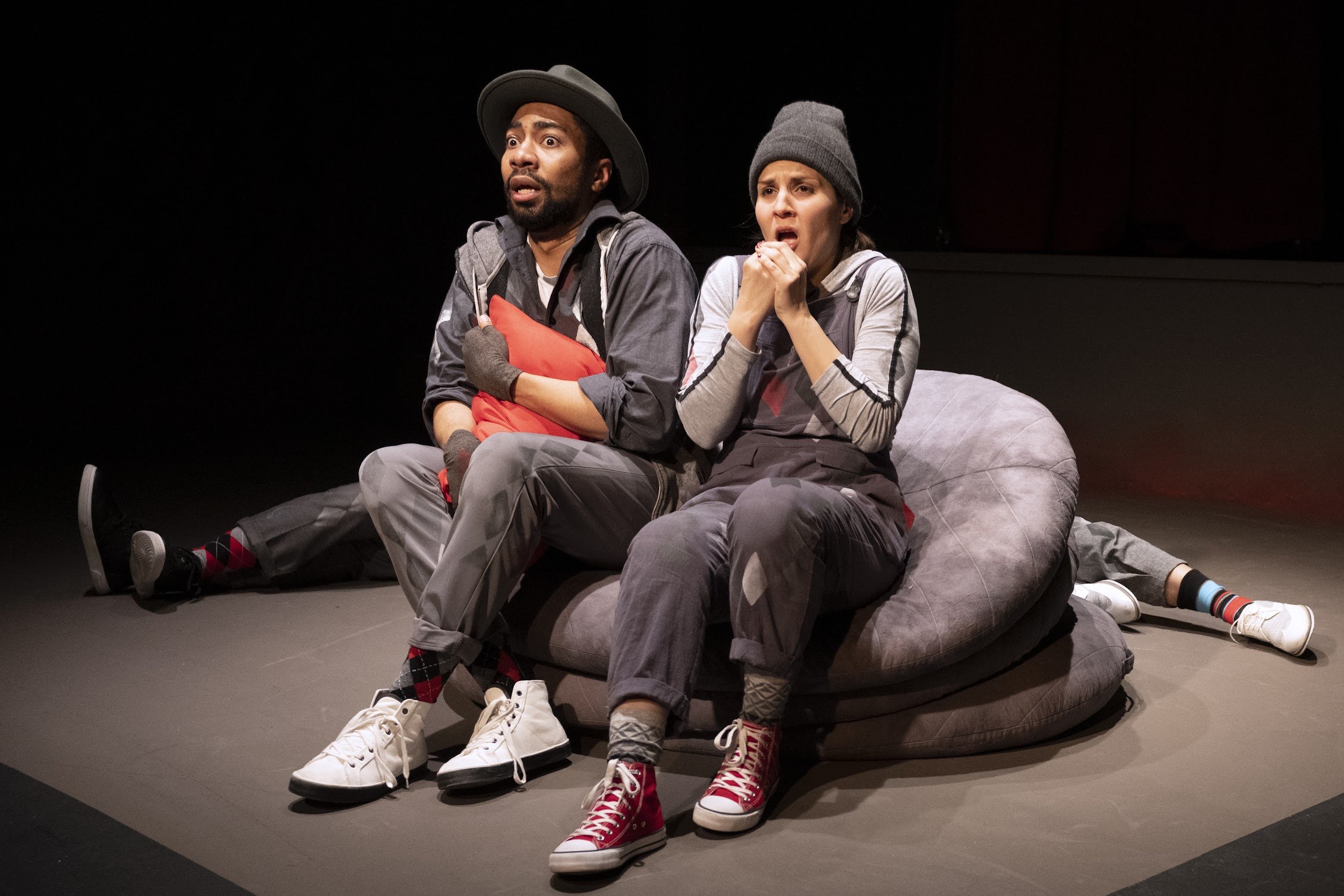
Diversity, Equity, Inclusion,
and Accessibility
PHOTO: Kevis Hillocks and Robert Barnes in Antoinette Nwandu's PASS OVER, directed by Devin E. Haqq (February 2020).
Diversity, Equity, Inclusion, and Access at Luna Stage
Luna Stage is committed to the development and production of new theatrical works that will support our communities, challenge white supremacy culture, and create physical and metaphorical spaces where all are welcome, engaged, challenged, inspired and uplifted.
At this pivotal moment in our democracy, it is vital that our arts organizations embrace hope and grapple with the essential question of who we are as a country, as well as incorporate practices and policies towards equity. We believe that engaging authentically with stories of previously obscured experiences and amplifying underrepresented voices can change our world.
We believe that artistic engagement is a civic right, and are dedicated to eliminating barriers to participation and to nurturing the next generation of artistic voices. Throughout its history, Luna has consistently commissioned and supported early-career BIPOC artists, developing and producing world premieres including Nikkole Salter’s Lines In The Dust and Indian Head, Matthew Lopez’s The Whipping Man, and many others.
We commit to continuing this practice, and to programming at least 50% BIPOC-created work on our MainStage and in our Studio. Luna Stage encourages open submissions from playwrights throughout their career. By building bridges between our programming and deep conversations, we reinforce the idea that art catalyzes understanding and action.
Luna Stage recognizes and aims to dismantle the role ableism plays in the American theater. To that end, Luna does not discriminate on the basis of disability in employment, admission, or participation in Luna's programs. Luna Stage has designated a staff member to facilitate compliance with the Americans with Disabilities Act of 1990 (ADA) and with sections 504 and 508 of the Rehabilitation Act of 1973, and Luna’s theater and facilities are ADA-accessible. Beyond the letter of the law, Luna Stage is committed to addressing accessibility barriers that exist in programs and services. We offer large-print programs and assistive listening devices, and we’re working on expanding our accessibility offerings even further.
Luna acknowledges the ways in which race, gender, disability, and other factors affect employment, and we believe in equitable work practices. Luna continues to adhere to a twenty-six hour rehearsal week model, with no 10 out of 12 hour work days. The pay scale at Luna aims to close the wage gap, with our highest-paid employees making approximately 1.5 times the lowest salary. Luna does not offer unpaid internships; instead, all interns are paid over 50% of the highest-paid staff member’s rate. We are committed to hiring staff and artists whose identity and work explores diverse cultural experiences.
Luna’s executive board is currently 50% BIPOC and 75% female. In support of diversity, equity and access across our leadership, Luna Stage revised its previous board policies to eliminate financial requirements for membership. Luna has a standing six-year board term limit.
In response to the COVID-19 pandemic, we transformed all of our educational and artistic programming to a pay-what-you-wish model, which enhances equity and access. Virtual programming also widened our audience past those able to attend physically. We plan to integrate this learning from the past year as we explore re-opening, prioritizing the contributions of long-term local residents in this process.
Our physical space is located at a crossroads of communities and cultures, and we actively participate in building an artistic landscape inspired by our location. We recognize that entering Luna’s building is a barrier for many. A central aspect of Luna’s mission is to offer theatrical experience in the primarily low-income Valley Arts district and neighboring areas of Orange and West Orange that immediately surround our theatre. To ensure that we are welcoming the widest possible audience, we perform in community spaces and in multiple languages. We are also working on closed captions for virtual performances.
We are deeply committed both to expanding access to all of our on-site programming and to creating theatrical experiences off-site to better serve our culturally and socio-economically diverse community. We recruit front-of-house staff and teaching artists who both come from and reflect the communities we serve. This allows us to better serve our audiences and students, and to grow institutionally as these voices become instrumental in shaping our programming.
We are aware that equity is a process, and we are engaging in an ongoing exploration of how we can improve both artistically and institutionally.

Darin Earl and Valerie Terranova in in Bernardo Cubría’s THE GIANT VOID IN MY SOUL, directed by Rajesh Bose (May 2022). PHOTO: Joel Weber.
